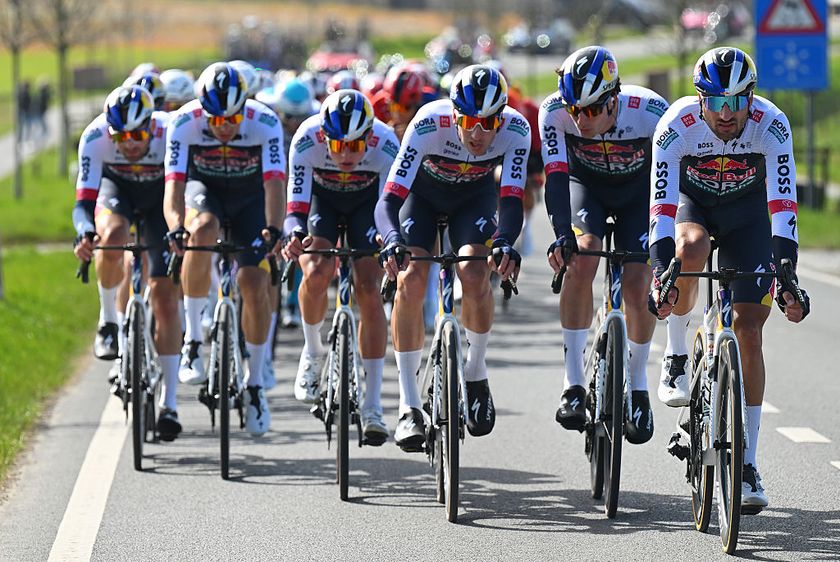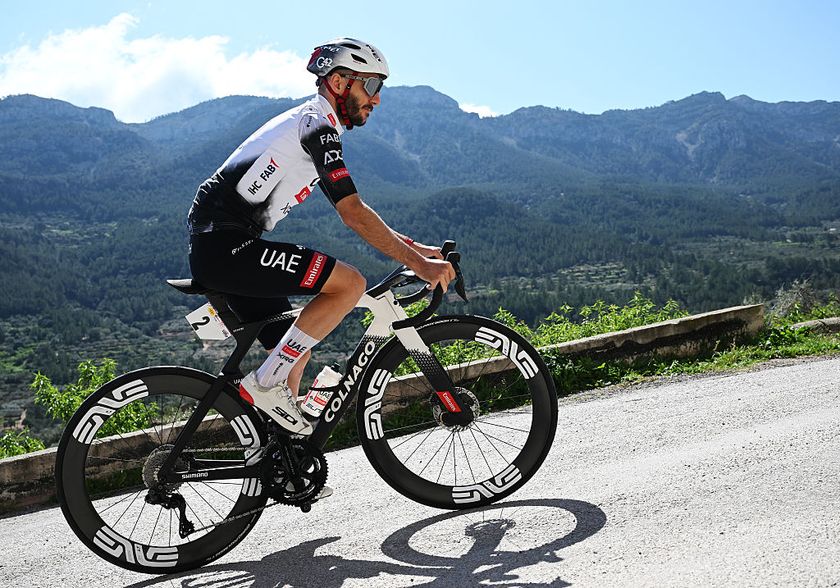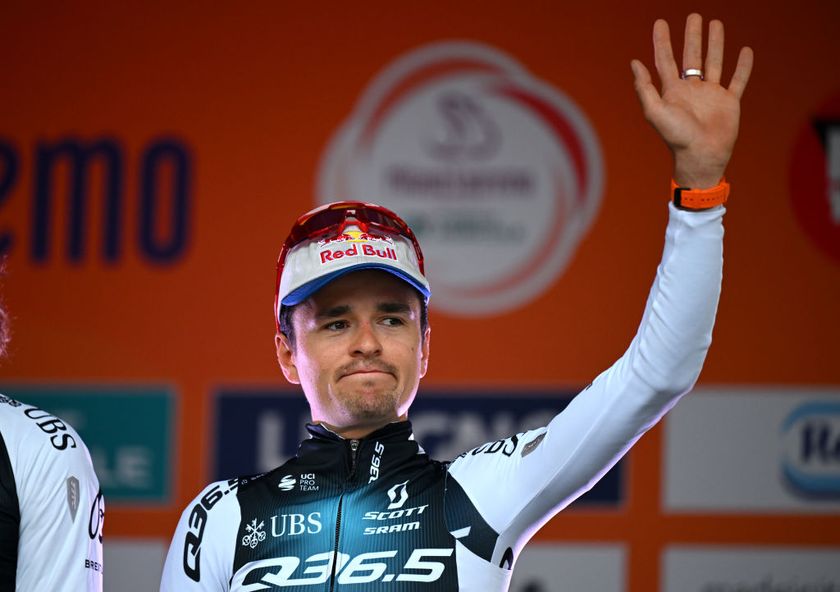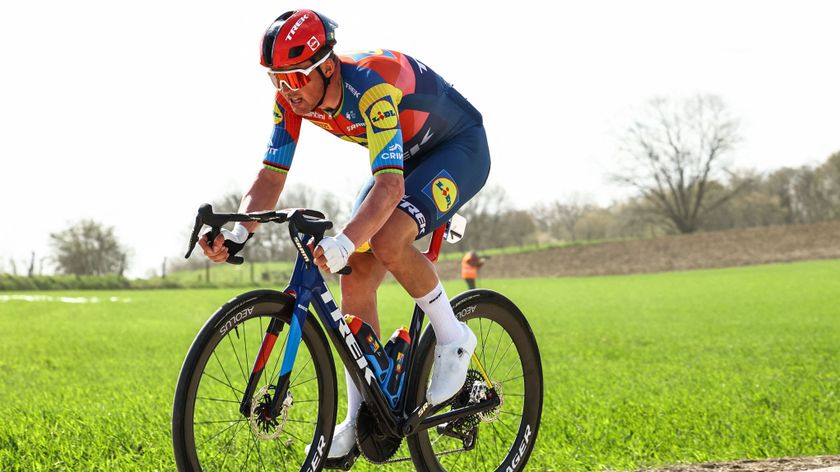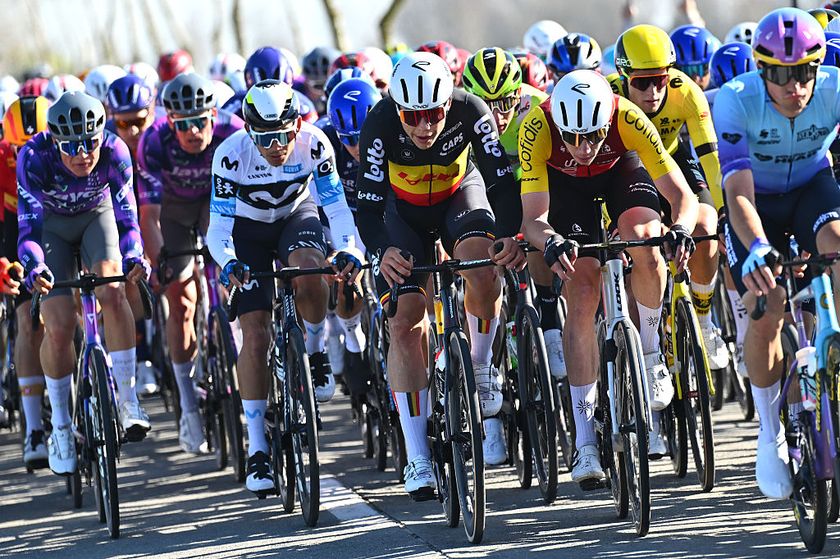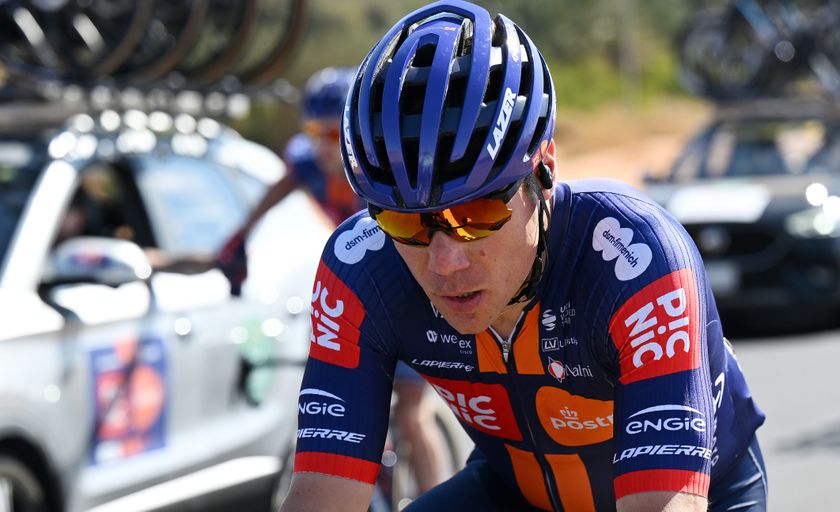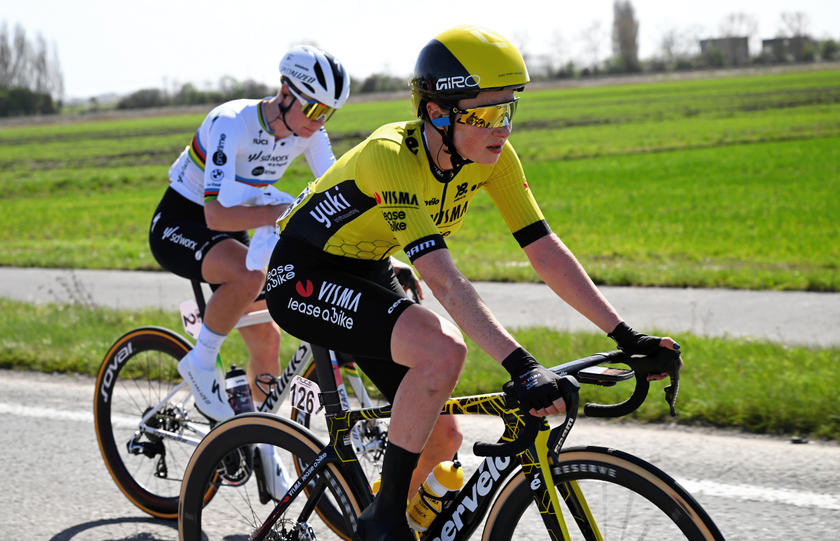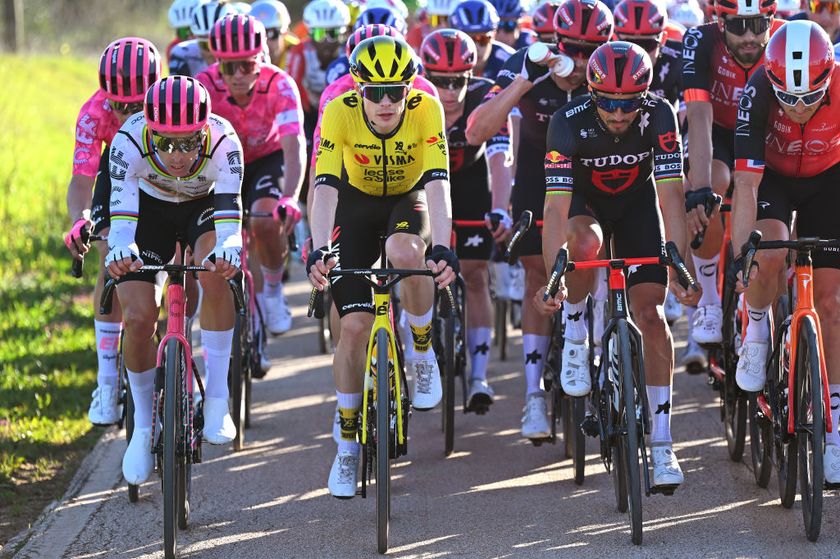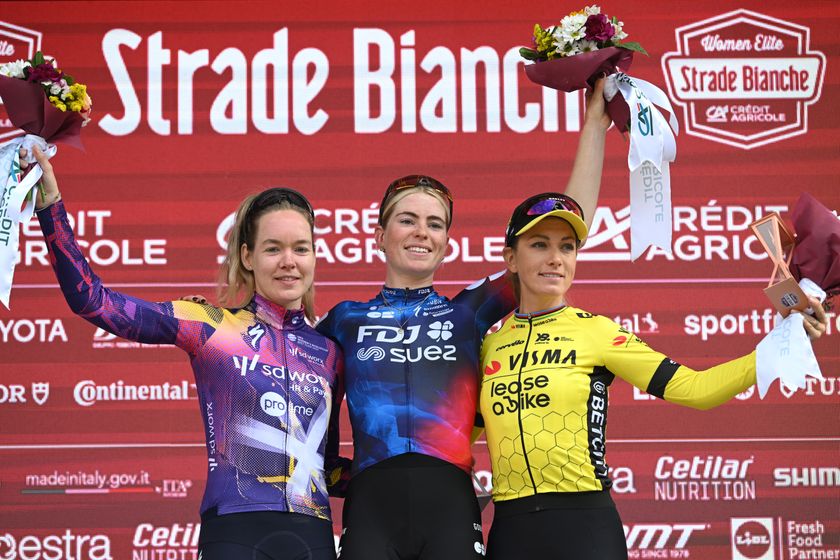Primož Roglič 'had the legs' and back in command at Vuelta a España with summit sprint win
History repeats itself as Slovenian claims 13th stage of career and moves into overall lead
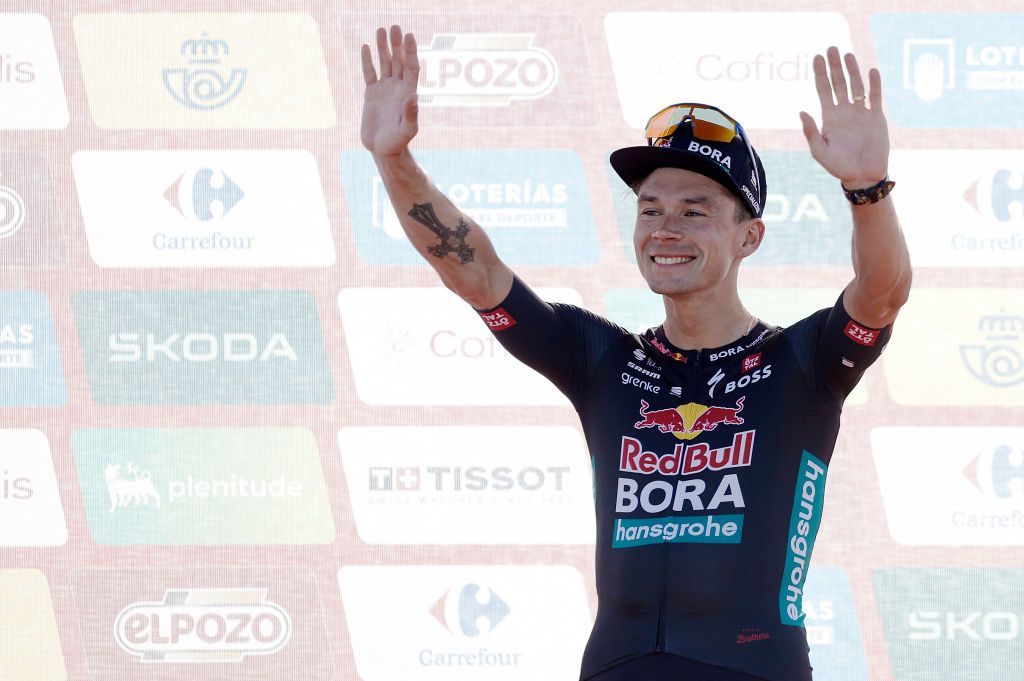
The years roll by but Primoz Roglič’s capacity to bounce back from Tour de France disappointment with Vuelta a España success showed no sign of diminishing on Tuesday as the Slovenian outpowered a select group of GC favourites to claim both the stage win and the overall lead.
A top 10 and the fastest of the main contenders in the opening time trial in Lisbon, Roglič had already shown on stage 1 that he was well on the way to recovering from a fractured back injury that caused him to quit the Tour de France.
But rather than automatically assuming he’d be ahead of the rest of the GC field on the climbs as well, both he and his Red Bull-Bora-Hansgrohe team opted for caution after Lisbon's ITT, saying that good time trialling condition for Roglič was not necessarily a sign that he’d be in such good shape in the mountains, too.
Just 72 hours later, that particular question mark promptly evaporated in the blistering heat of western Spain, as the 34-year-old first shredded the field and then delivered a trademark high-speed dash to the line at the summit of the Villuercas climb.
Fastest in a small group of seven, Roglič might well have lost the sprint had Lennert van Eetvelt (Lotto-Dstny) not made a rookie's error of raising his arm too soon. But what was arguably even more impressive was the way that Roglič led the race almost from the bottom to the top of the steep segment of the Villuercas climb.
It is certainly too early to say that Roglič has a definitive hold on the Vuelta. In 2022, for example, the Slovenian star also started a similar comeback bid in Spain with a first-week uphill win and a day in the lead, only to fade as the race progressed.
But with an eight-second advantage over closest rival João Almeida (UAE Team Emirates), 32-second lead on Enric Mas (Movistar) and over a minute on 2023 Vuelta winner Sepp Kuss (Visma-Lease a Bike) after just four days racing, Roglič is once again already looking like the rider in command.
Get The Leadout Newsletter
The latest race content, interviews, features, reviews and expert buying guides, direct to your inbox!
“I still feel my back pain,” the triple Vuelta a España winner insisted afterwards. “The whole team did a great job throughout the day, and I’m happy I had the legs [because] I didn’t have much choice [about attacking], I just had to finish things off.
“But that doesn’t change about seeing how I will go, how my body will react, and hopefully my back will definitely improve during the Vuelta.”
Regarding the sprint against Van Eetvelt, Roglič said he had seen the young Belgian racing on TV and he knew he was fast and strong in finishes like Villuercas.
“He got off to a fast sprint, but luckily I could get back to him and just finish in front of him at the end,” he said.
“Definitely it shows you have to fight to the end. I believed in my chances, but it’s not over til it’s over and you don’t know what place you will get. Just giving everything and doing a nice sprint was enough this time. So once again thanks to the team, because it was them that made it possible to fight for the win.”
Roglič’s latest victory came after Red Bull-Bora-Hansgrohe had certainly put all their eggs in a Slovenian-shaped basket, working hard throughout the day in a clear statement of intent and not letting the breakaway of five riders get more than three minutes. Then after a furious mass dash for the foot of the steepest part of the climb at Villuercas, and an initial burst of power by Pavel Sivakov (UAE Team Emirates) and fleeting solo attack by Felix Gall (Decathlon AG2R La Mondiale), Roglič laid down his Vuelta law once again.
Asked if he liked such a steep climb like Villuercas to test his rivals and if it was too hard to make a difference, Roglič partly agreed.
“It’s just spectacular by itself, a concrete road, so steep - real Vuelta style. It’s hard at such low speeds to make a big difference, but at the end, it’s always simple. If you have legs, it’s nice to do it and if you don’t, then it’s harder and slower. Today I was lucky, I had the legs.”
As for whether Villuercas was enough to get an impression of whom his rivals will be for the Vuelta, given the scale of the time gaps on rivals like Kuss, and Carlos Rodriguez (Ineos Grenadiers) at over a minute, the Slovenian delivered a by-now time-honoured line from the ‘School of Roglič’ that, “It’s always better to be a bit in front than behind".
“But the fact is this is just the start of the race, a lot of climbs are yet to happen and the hardest climbs are yet to come," he added. "We just have to enjoy the stage, take it day by day, do our best and that’s all we can manage and all we can do.”
For all his caution, it will have escaped nobody’s notice that in both the Giro d’Italia and the Tour de France, the winner of the first major mountain stage - at Oropa in Italy and the Galibier two months later - was also the final outright champion as well. At the very least, for Roglič’s rivals, any hope that his injury, not to mention his increasingly veteran status, might have dimmed the Slovenian’s ability and ambition to secure a record-equalling fourth Vuelta title, has now surely faded considerably.
What they can do about it, though, remains very much to be seen, and as Roglič pointed out, with 17 stages of the most mountainous Vuelta of the century to come, opportunities to challenge him will not be lacking.
For now though, it’s back to the same scenario of 2019, 2020 and 2021 in the Vuelta, with Roglič at the head of the field in Spain, and very much the man to beat.
Get unlimited access to all of our coverage of the 2024 Vuelta a España - including breaking news and analysis reported by our journalists on the ground from every stage as it happens and more. Find out more.
Alasdair Fotheringham has been reporting on cycling since 1991. He has covered every Tour de France since 1992 bar one, as well as numerous other bike races of all shapes and sizes, ranging from the Olympic Games in 2008 to the now sadly defunct Subida a Urkiola hill climb in Spain. As well as working for Cyclingnews, he has also written for The Independent, The Guardian, ProCycling, The Express and Reuters.

